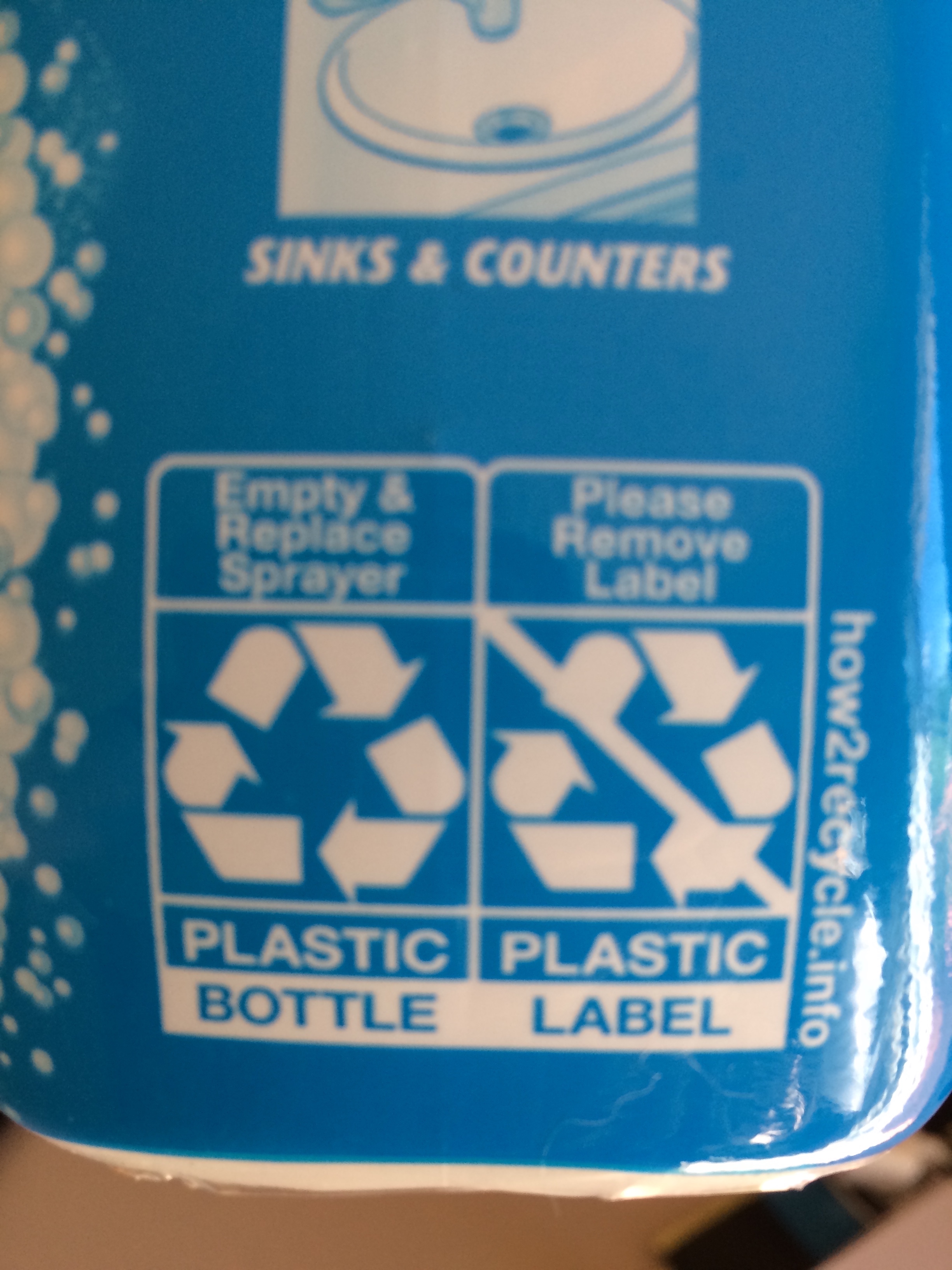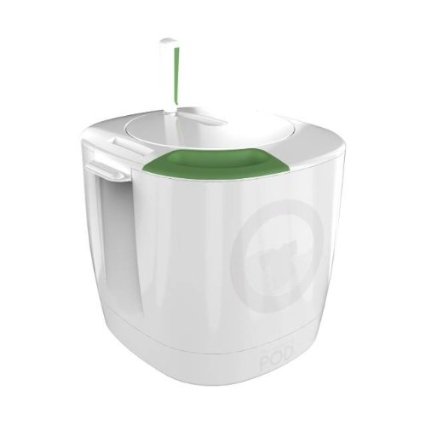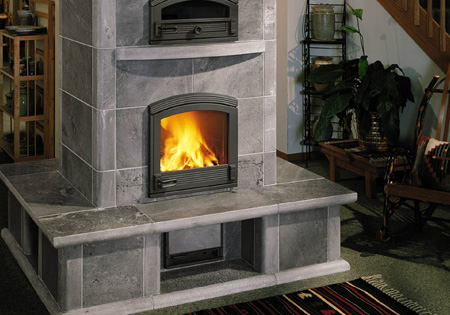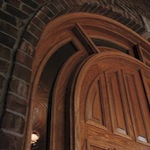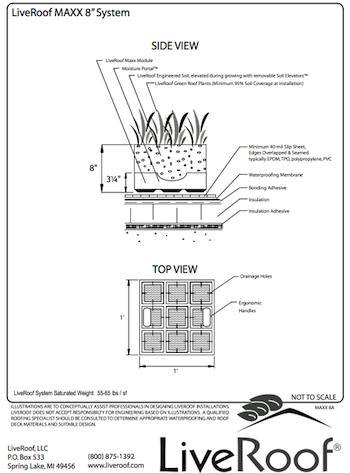Cork Flooring
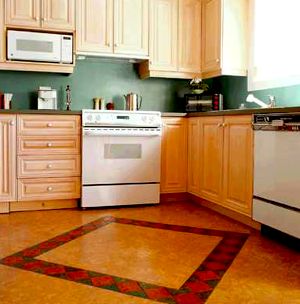
Cork Flooring
Cork Flooring, along with a majority of other cork based products is made from the bark of the cork oak tree. The bark is trimmed and removed from the tree approximately every nine years. The interior bark layer is left untouched which allows the tree to continue to grow and produce new bark without being killed. It’s common to have a 200+ year old tree still producing cork bark.
After removal the cork is allowed to dry in the forest for several months. After this natural drying process, the bark is then gathered and transported to manufacturing factories, where wine bottle corks are produced from the bark.
Cork Flooring is made from the waste material leftover from bottle cork manufacturing. The leftovers are boiled and ground up, then compressed into sheets using adhesive resins. This ground-up and reassembled product can then be cut and used as a final flooring piece. Any scraps that may be generated are collected for reuse, so almost nothing is wasted.
After the wine bottle corks are bored from the layers of bark, there is a tremendous amount of waste that are left-over. This waste would be thrown away if not used for cork flooring.
The Benefits of Cork Flooring
Cork is a natural and renewable resource, but those are just two of the obvious benefits for its use. As you can see from the list below, there are a number of other benefits.
- Cork flooring is an outstanding option to use in an upstairs, or multi-level home due to its natural sound barrier characteristics.
- This natural cushioning quality makes it exceedingly comfortable to walk on.
- The resiliency characteristics also contribute to it's shock absorbing qualities.
- If you have children, you will appreciate its softness, and it will take the sound out of noisy foot traffic.
- Cork is also considered to be extremely long-lasting and is very easy to care for.
- It is mold and mildew resistant, too. If someone in your family suffers from allergies, a cork floor provides an alternative to allergen-collecting carpet.
- It's exceedingly attractive. There are many earthy colors and rich textures obtainable in cork flooring. The color is controlled by means of the manufacturing process through varying the baking time.
- Cork is naturally flame-resistant.
What Does Cork Flooring Cost?
A significant consideration for a home-owner's flooring needs is the cost of flooring products. Pricing varies considerably, but there are many affordable cork flooring options that cost between $3.50 to $6.50 per square foot. This price would not include specialty shapes, styles or colors. Specialty shapes can easily exceed $20 per square foot and would require a professional for installation.
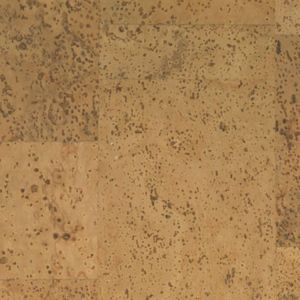
Cork Flooring - Typical Sample
If you enlist in the services of a flooring contractor, the cost of installation will roughly equal the cost of the materials.
You can purchase cork floors as roll-out sheets, floating panels, stick-in-place squares or tap-in-place tongue-and-groove tiles. A very common style for cork flooring is the floating type floor installation. This means that the typical homeowner with some do-it-yourself experience, can install a floor in a weekend.
Cork Flooring Care
Caring for a new cork flooring system is very simple indeed. Cork flooring requires no special equipment or harsh chemicals, just observe a few uncomplicated steps.
- If you spill on the floor, rapidly wipe it up. Because cork is an absorbent material, spills can soak into the surface if left standing too long.
- Clean on a regular basis, using a broom or a vacuum cleaner.
- Keep your floors free of dirt and debris. Even though cork is long-lasting, debris can cause surface scratching.
- Place felt pads under furniture legs to prevent scuffs and never pull furniture when moving it, always lift it.
- Also, locate breathable mats at all entry points where the cork flooring is located or areas of high traffic.
- Never mop the floor with water. (a damp mop is acceptable) There are cleaning formulas specifically labeled for cork floors on the market to clean soiled or stained areas on your floors.
- The flooring surface finish may fade after years of use. Merely employ the services of a finish specialist to bring back the original appearance of your floors.
Not All Cork Flooring Is Made Equal
Look for cork flooring that is formaldehyde-free, has low- or zero-volatile organic compounds (VOCs), and that is made without harmful solvents. Some cork flooring products are combined with Polyvinyl Chloride (PVC) to make resilient flooring much like linoleum.
It would be best to avoid these products as they may leach toxins into your home and into the environment after their use. Also, if you plan on installing and finishing the cork flooring yourself, choose a low-VOC finish along with a proper low VOC adhesive.
comments powered by Disqus
